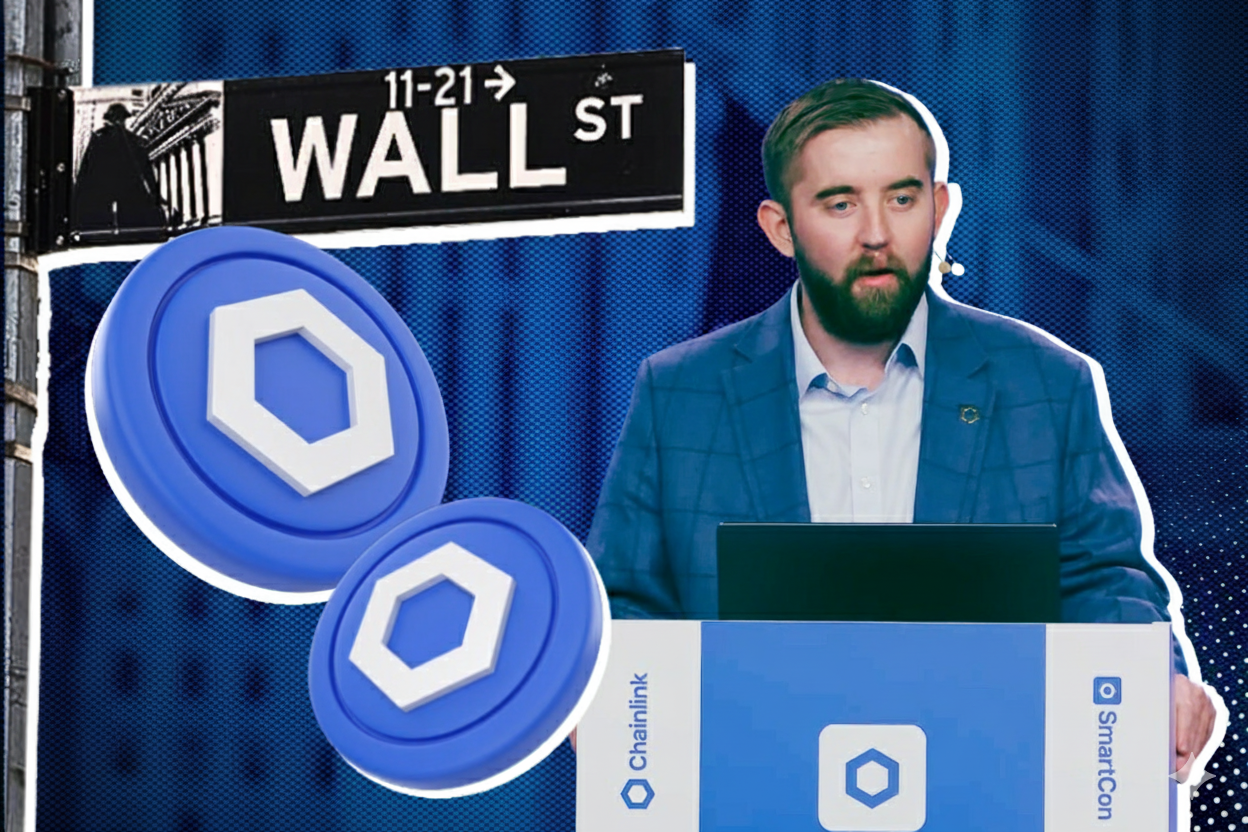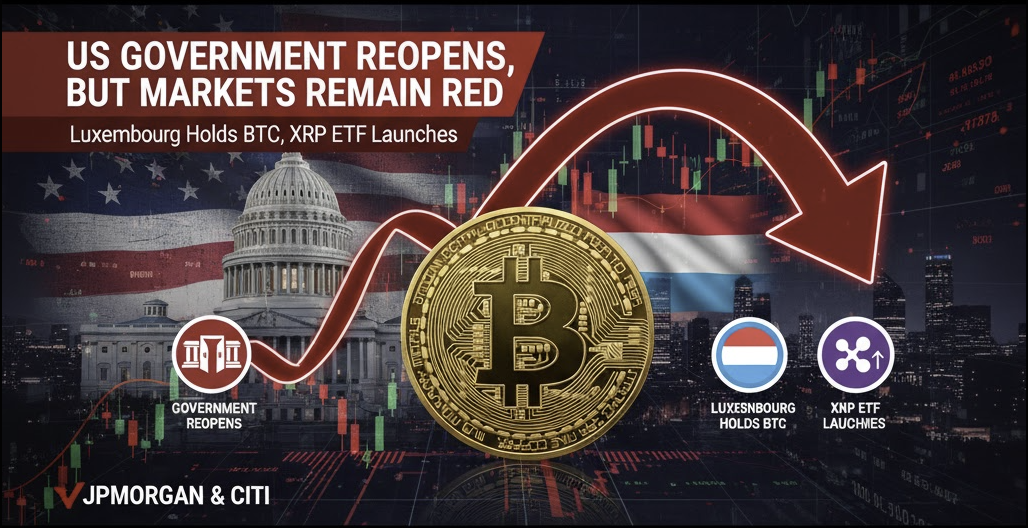The stock market and Bitcoin have seen a slight recovery, but the sharp recent drop in BTC continues to fuel intense debate.
Market Overview
US equities saw a recovery on Monday (October 13th, US) after a sharp decline on Friday. All three indices rose, with the Nasdaq seeing the largest gain at 2.2%. Stock futures also continued to trend upward. Oil prices rose slightly but remained low at $59.55 per barrel. Gold continued its climb, reaching a new high of $4130 per ounce.
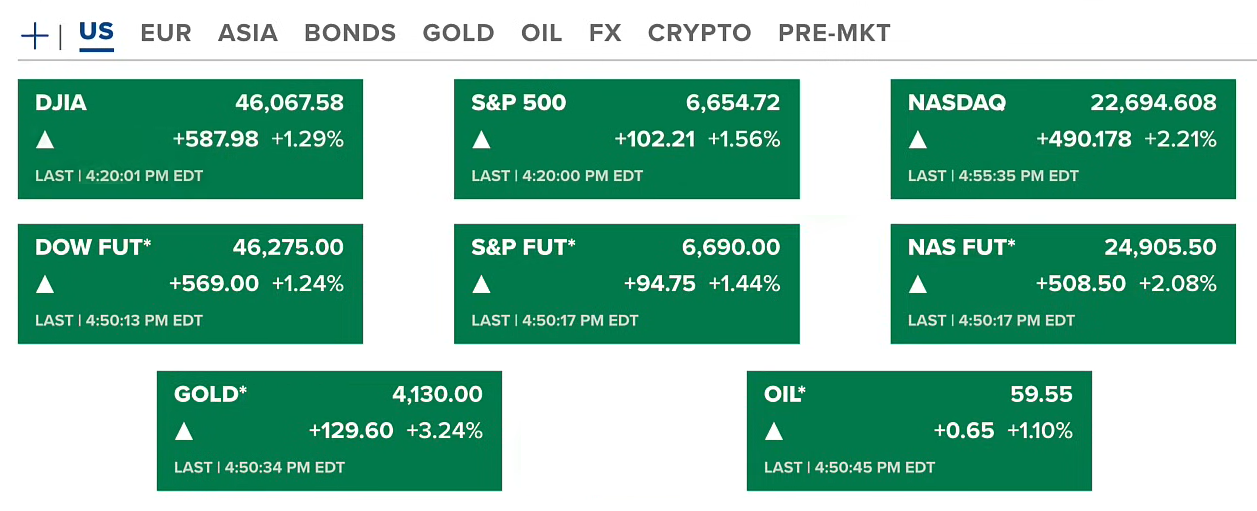
Regarding tariffs, China announced that US-owned ships built in China will be exempt from the new port fees, which were implemented in retaliation for US fees on Chinese ships.
Bitcoin recovered and held around $115,000 but briefly dipped to $113,000. Major altcoins traded sideways or saw minor declines. The overall crypto market capitalization saw a slight increase to $3.98 trillion.

US BTC spot ETFs saw outflows on Monday (October 13th, US) following the weekend's sharp price volatility, totaling $326.4 million. ETH spot ETFs also saw large outflows of $428.5 million. Conversely, the SOL ETF still recorded an inflow of $3.1 million.

The Controversy Surrounding the BTC Flash Crash
Hyperliquid has responded to accusations of excessive liquidation during the recent flash crash, where its reported liquidation volume was higher than the total of all major centralized exchanges (CEXs) combined.
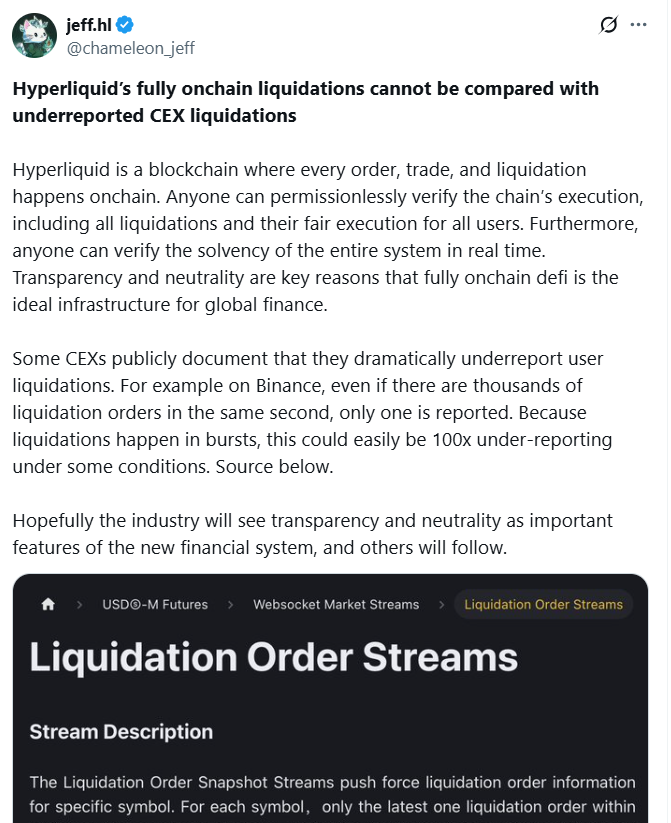
Hyperliquid argues that comparing its liquidation data with CEXs is unfair because CEXs (like Binance) are not entirely transparent. Some centralized exchanges only report one liquidation order even when thousands occur in the same second, meaning the true liquidation volume could be 100 times higher than the publicly announced figure.
In contrast, Hyperliquid operates entirely on-chain. All buy/sell orders and liquidations are recorded directly on the blockchain. Anyone can audit and verify the data in real-time. Nothing is concealed or controlled by a single private company.
During the recent sharp volatility, Hyperliquid liquidated billions of dollars in positions but maintained zero bad debt and suffered no service interruptions. "Zero bad debt" means the system did not lose money during the liquidation process; all user losses were fully covered by their collateral. The platform remained stable throughout the event.
When the market lacked liquidity to process large liquidations, the HLP (Hyperliquid Pool) participated to provide support. The HLP is divided into small "vaults" to mitigate risk. While these vaults may occasionally incur minor losses, this is a normal, designed function to protect the overall system and ensure user safety. Hyperliquid does not charge additional liquidation fees or secretly profit from these events. Its goal is to maintain a transparent and fair trading system where all users are treated equally.
The Hyperliquid team suggests that recent media attacks are being driven by other platforms trying to distract the public from their own internal issues. Hyperliquid asserts that transparency, solvency, and operational stability are the true standards of a trustworthy financial system.
Reflections on the Flash Crash
There has been much blame surrounding who caused the "flash crash" that wiped out tens of billions of dollars. Was it centralized exchanges? Market makers? Insiders? Or was it President Trump's post about tariffs on China? The truth is, we may never know precisely. It is highly likely to be a combination of all these factors. There were simply too many leveraged positions, and someone may have intentionally hunted those positions. President Trump's post was merely a convenient catalyst. If it hadn't been that post, another event would have triggered the chain reaction. The fact that the sell-off began before the news was officially released suggests that someone may have had prior knowledge.
During the chaos, liquidity was withdrawn from exchanges, causing many altcoins to plummet. This led to more liquidations as there was almost no real buying demand left. Only market makers remained, pricing assets with huge spreads because they knew everyone was in a panic to sell. Furthermore, many centralized exchanges suffered from errors, lag, or halted operations, preventing users from closing, adjusting, or opening new positions.
The damage has been done. The important question is what you have learned from this event. For me, the new lesson learned is that there is no such thing as "blue-chip crypto" in terms of crash resilience. They may be blue-chip in terms of market cap, but they are still highly susceptible to sharp drops.
They say that air safety rules are written in blood, learned from past tragedies. Investment rules are written in sweat, tears, and sleepless nights, etched by those who lost everything before learning what truly matters. You may not like wearing a helmet when riding a motorcycle or a seatbelt when driving a car, and you might be fine for a long time—until an accident occurs.
Companies Expand into the Crypto Market
Traditional financial conglomerates and institutions are increasingly expanding their presence in the digital asset sector, showing that crypto is entering a phase of deeper integration with the global financial system. Citibank recently announced plans to launch Bitcoin and crypto custody services in 2026, marking a significant step by one of the world's largest banks into digital asset infrastructure. In the US, JPMorgan confirmed to CNBC that the bank will soon allow clients to trade Bitcoin and other cryptocurrencies, though it is not yet offering custody services.
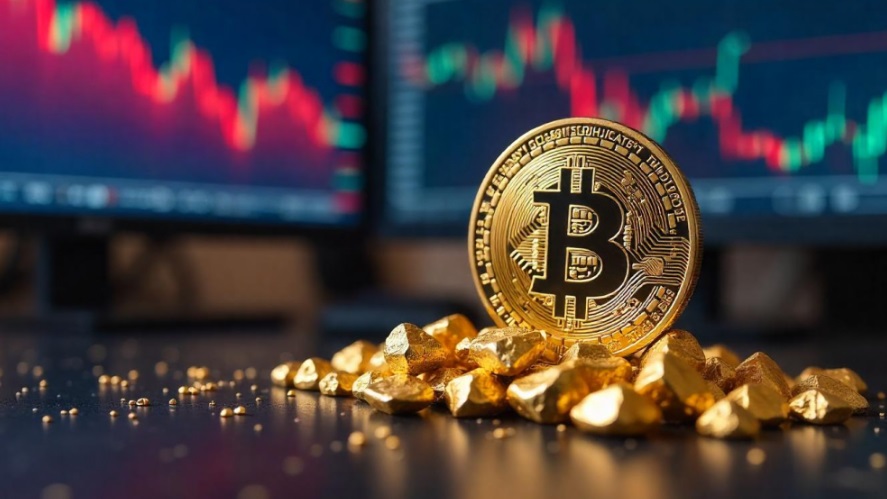
In Europe, Amundi, the region's largest asset management company with $2 trillion under management, is also preparing to launch a Bitcoin ETF, showing a clear shift in how traditional financial institutions approach the crypto market.
Concurrently, native crypto companies continue to expand into the traditional financial sector. Coinbase plans to launch a new American Express credit card in the US, offering up to 4% cashback in Bitcoin for eligible users, directly competing with Gemini's card.
In the Middle East, Dubai is emerging as a leading financial and digital asset hub. The city's government recently announced a new Financial Sector Development Strategy, where virtual assets are a core pillar, with the goal of increasing the sector's contribution to 3% of GDP, equivalent to about $3.54 billion. Dubai currently oversees over 40 licensed digital asset service providers, with a total trading volume exceeding $680 billion since the beginning of 2025. On the third anniversary of the Virtual Assets Regulatory Authority (VARA), Prime Minister and Ruler of Dubai Sheikh Mohammed bin Rashid Al Maktoum praised his son, Sheikh Maktoum bin Mohammed, for his efforts in making Dubai a top global hub for digital assets, contributing to the formation of a new, potentially massive economic sector for the nation.
Other Key Crypto & Market Updates
Strategy purchased an additional 220 BTC valued at approximately $27.2 million at a price of $123,561. The company now holds a total of 640,250 BTC, equivalent to about $73 billion at the current Bitcoin price ($112,000/BTC). Their average purchase price is estimated at $74,000/BTC.
According to Forbes, President Trump indirectly holds approximately $870 million worth of Bitcoin through a 41% stake in Trump Media & Technology Group (TMTG) — the parent company of the Truth Social platform. This holding does not appear in official financial reports as it is owned indirectly. Since early 2025, TMTG has raised $2.3 billion through stock and bond issuance, subsequently spending $2 billion to purchase Bitcoin, making Trump one of the largest individual BTC holders globally.
B HODL just bought an additional 6 BTC at an average price of $114,000, raising its total holdings to 142 BTC. The company, backed by Adam Back, focuses on long-term Bitcoin accumulation and generating profit via the Lightning Network. In the UK, Smarter Web Company, the largest publicly listed Bitcoin holder in the country, also purchased an additional 100 BTC worth $12.1 million, bringing its total ownership to 2,650 BTC (about $219 million). CEO Andrew Webley affirmed the company's 10-year Bitcoin accumulation strategy.
The Dutch government has taken over Nexperia, a chip company owned by China's Wingtech Technology, citing national security concerns and a need to secure the chip supply for Europe. This decision was made under the Act on Undesirable Takeovers after serious governance issues were discovered. Wingtech has protested, calling the action geopolitical. This move reflects a global trend of increasing protectionism under the guise of national security, which raises risks for cross-border assets and fiat currencies, pushing investors towards gold and Bitcoin as value preservation channels.
The Central Bank of Russia is considering tokenizing stocks to allow foreign investors to purchase shares of Russian companies without being affected by sanctions. Experts believe this step would help Russia attract capital from friendly nations and increase market access for retail investors by fractionalizing stock values.
Steak 'N Shake quickly retracted its intention to accept Ethereum payments after facing a strong backlash from the Bitcoin community. They removed the survey after just a few hours and declared, "we always stand with the Bitcoin community."
Sources
- CoinGlass (Liquidation Data)
- Hyperliquid Founder Jeff (Public Statements)
- Forbes
- V.A.R.A. (Dubai Virtual Assets Regulatory Authority)
- The New York Times
- CNBC (JPMorgan, Amundi)
- Coinbase Official Announcements
- Nexperia (Government Takeover Reports)
- Smarter Web Company Investor Relations
Disclaimer
This article is for informational purposes only and should not be considered financial advice. Please do your own research before making investment decisions.

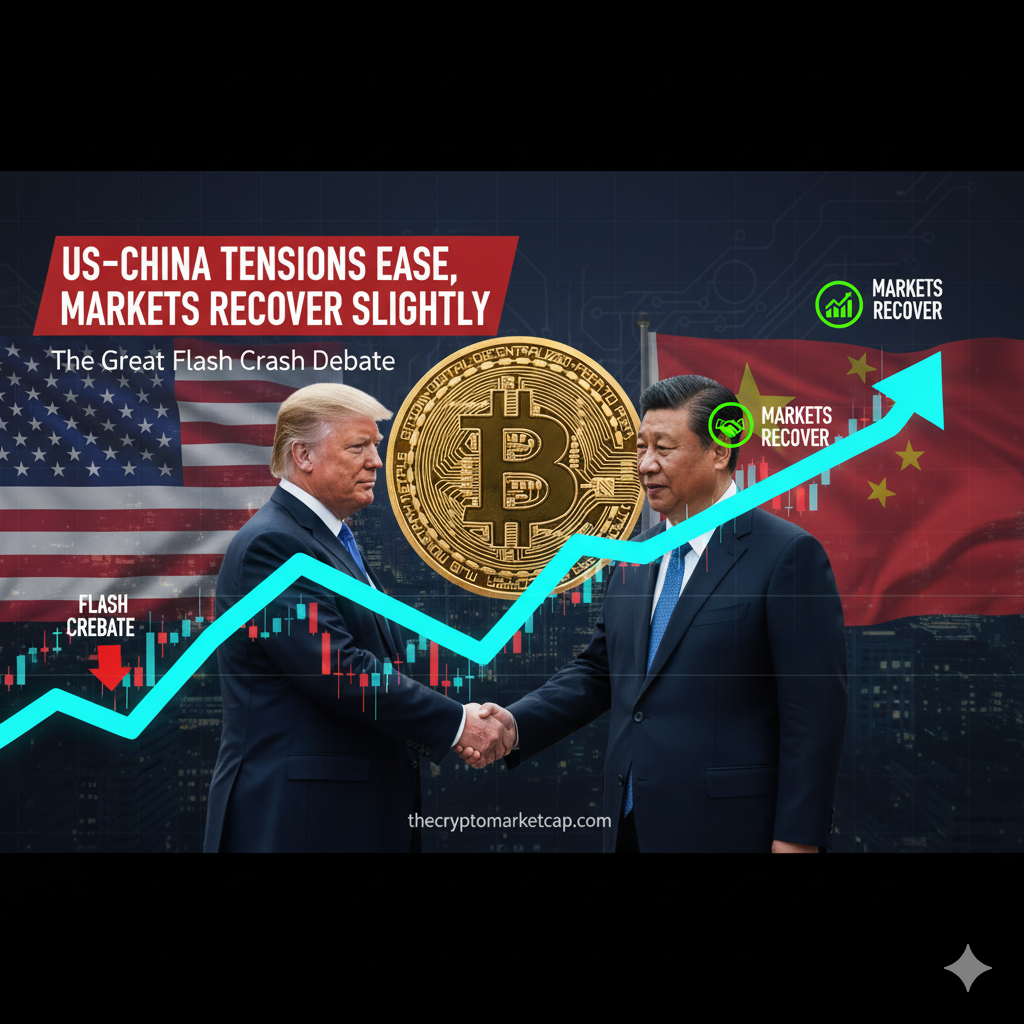
.png)



